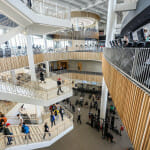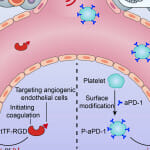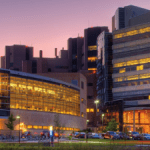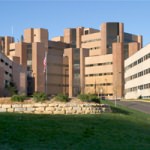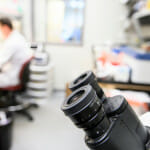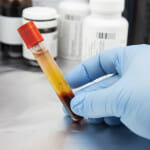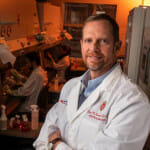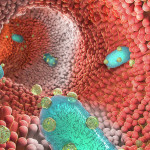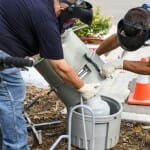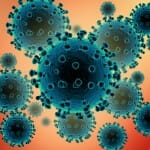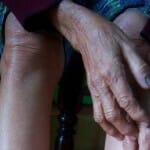Category Health & Wellness
Bakke Center a big hit on its first day
The Bakke Recreation & Wellbeing Center impressed students and campus community members, who tried out everything from the Sub-Zero Ice Arena on the first level… Read More
UW Carbone Cancer Center conducting breast cancer vaccine clinical trial
The trial is testing a novel vaccine, developed by Dr. Nora Disis at the University of Washington in Seattle, designed to prevent the recurrence of triple-negative breast cancer. Read More
Weight loss may be early predictor of Alzheimer’s disease in Down syndrome
The findings indicate weight loss may be a useful predictor of the disease prior to the onset of the cognitive problems that often trigger diagnosis. Read More
Following pandemic, educators are not all right but meditation could ease burden
UW's Center for Healthy Minds has found that COVID-19's upheaval of K-12 schooling took its toll on educators and staff, but a meditation app showed promise for relieving symptoms of anxiety and depression. Read More
A blood test for cancer shows promise thanks to machine learning
UW–Madison researchers have developed a method for early cancer detection using blood plasma, machine learning and equipment commonly found in medical labs. Read More
First-in-kind psychedelic trials treat opioid and methamphetamine use disorders
School of Pharmacy and School of Medicine and Public Health collaborators are leading two first-in-kind clinical psilocybin trials for treating opioid and methamphetamine use disorders. Read More
Lab-grown retinal eye cells make successful connections, open door for clinical trials to treat blindness
The most common retinal cell types forming synapses were photoreceptors – rods and cones – which are lost in diseases like retinitis pigmentosa and age-related macular degeneration, as well as in certain eye injuries. Read More
Winter commencement 2022: A joyful step out into the world
The winter commencement ceremony at the Kohl Center on Dec. 18 had plenty of pageantry, but also a lot of fun, including foam hands, comedian Charlie Berens and a sprinkling of snow outside. Read More
UW research in 2022: From restored prairie to scorpion venom to the sewer
Here are the science stories on campus during 2022 that wowed and inspired us. Read More
Partisan divide contributed to false sense of racial equality in pandemic mortality
A new study from UW–Madison researchers pins the rise in white COVID-19 deaths to state party politics. Read More
Students of innovative course report significantly improved mental health and flourishing
Students enrolled in an experimental course called The of Art and Science of Human Flourishing demonstrated improved mental health and flourishing, according to researchers at the UW–Madison Center for Healthy Minds and collaborators. Read More

